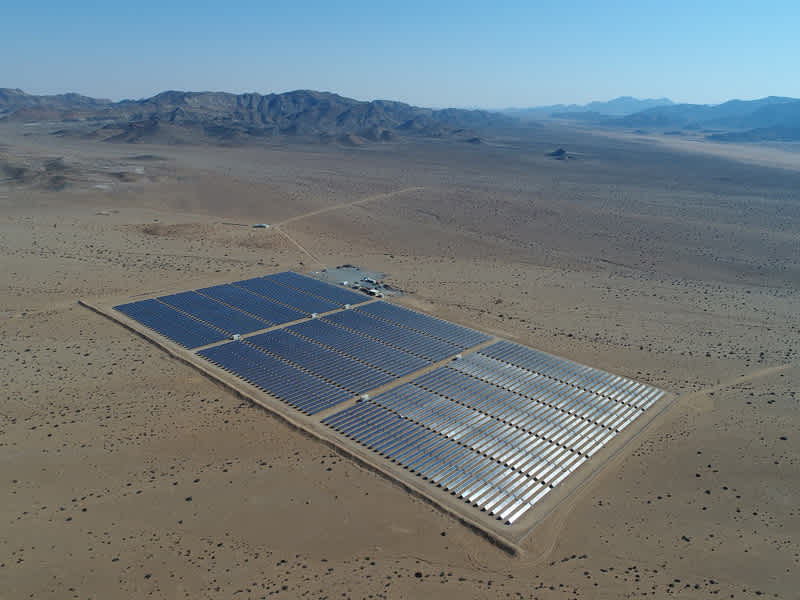Innovative climate financing: 5mw PV solar farm for Namibia
Namibia has some of the best solar resources in the world. Since June 2017, a new solar farm has been harnessing this energy potential.
If you are looking for THE place in the sun, you will probably find it in Namibia. An average of ten hours of sunlight per day makes it one of the world’s sunniest regions. It therefore seems somewhat ironic that Namibia currently imports 60% of its electricity from neighbouring countries and that as much as 40% of its rural population lacks access to energy.
To promote the development of the country’s renewable energy capacity, Namibia launched its first Renewable Energy Feed-In Tariff (REFIT) programme in 2014, enabling independent power producers to obtain licenses to supply a combined total of 70 MW of renewable energy to the national grid.
Direct financing by climate fund investment vehicle
The newly constructed 5 MW Rosh Pinah project is part of the REFIT programme. By feeding 13.5 GWh of electricity into the national grid on an annual basis, the plant will help to enhance energy security and to reduce Namibia’s dependence on electricity imports.
The power plant was developed by AEE Power Ventures, a Spanish company that develops, owns and operates solar projects across Sub-Saharan Africa. It was financed by the energy fund that is managed by responsAbility and specialises in providing climate financing in developing countries.
Innovative project financing in local currency
To finance the project, the climate fund investment vehicle worked with RMB Namibia, a subsidiary of the investment bank First National Bank of Namibia Limited. The guarantee structure that they put in place allowed the project to be funded in local currency – the first financing solution of its kind in Namibia according to Philippe Flamand, Senior Investment Officer at responsAbility.
“The financing solution is extremely complex and we worked very intensively with RMB Namibia to achieve it,” he emphasized. “The structure allowed us to implement effective long-term non‑recourse project financing in a booming solar sector.”
The project is 30% owned by previously disadvantage Namibians and will contribute to the development of the local community by providing employment and promoting the transfer of knowledge.

More information about the Rosh Pinah solar farm and the different parties involved in the project
Climate financing: 17% more investment, 100% more CO2 savings – here’s how it works